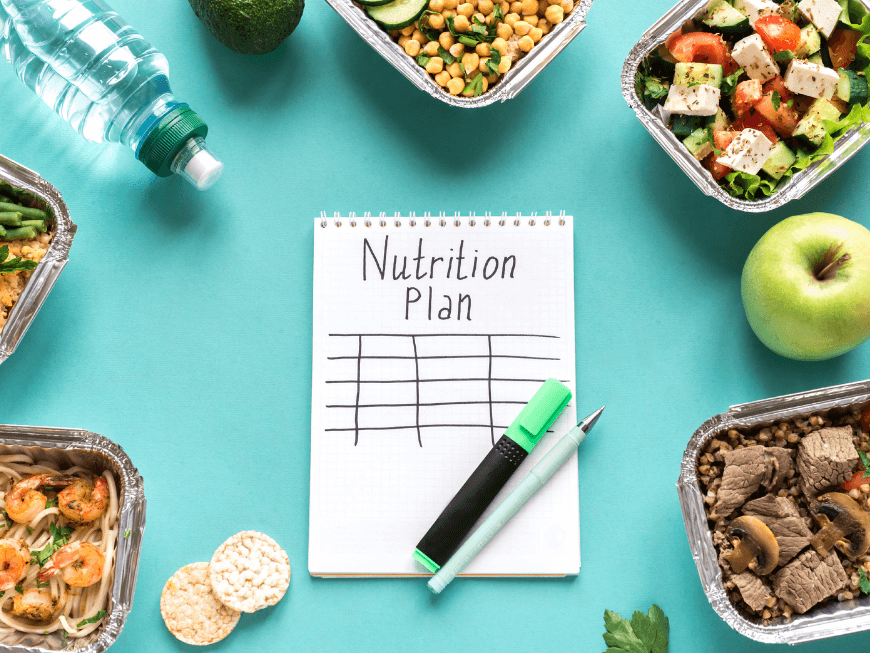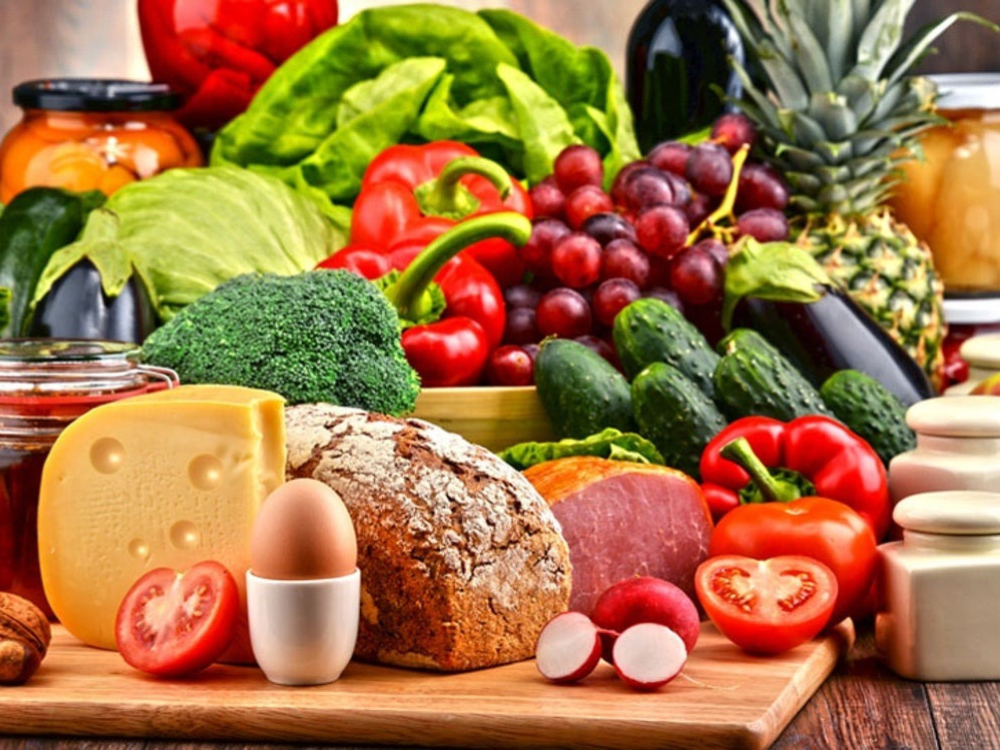I. Introduction
Swimming is an intense and demanding sport that requires athletes to maintain peak physical condition. To achieve their best performance, swimmers must pay close attention to their nutrition. In this comprehensive guide, we will explore the crucial role of nutrition in swimming, the key components of a swimmer’s diet, pre-swim and post-swim nutrition, meal planning and timing, special dietary considerations, supplements, the recovery phase, meal and snack ideas, and how to stay safe with a swimming food plan.

II. The Role of Nutrition in Swimming Food Plan
Nutrition is the cornerstone of any successful swimming career. Swimmers need a well-balanced diet to fuel their workouts, promote muscle growth, and enhance recovery. The right nutrition can also help swimmers maintain their ideal weight, improve endurance, and reduce the risk of injury. It’s not just about what you eat but also when and how you eat it.
III. Key Components of a Swimmer’s Diet
A swimmer’s diet should consist of a balanced mix of macronutrients: carbohydrates, protein, and fats. Carbohydrates provide the primary source of energy for swimmers and should make up the largest portion of their diet. Protein is essential for muscle repair and growth, while fats are necessary for overall health and energy storage.
Swimmers should also focus on nutrient-dense foods that provide essential vitamins and minerals. Incorporating a variety of fruits and vegetables is essential to ensure they get the necessary nutrients for optimal performance.
IV. Pre-Swim and Post-Swim Nutrition in a Swimming Food Plan
Proper nutrition around workouts is vital for swimmers. They should consume a well-balanced meal two to three hours before a swim to provide sustained energy. After exercise, a combination of carbohydrates and protein helps with recovery, replenishing glycogen stores and supporting muscle repair.

V. Meal Planning and Timing
Swimmers should aim for multiple, well-balanced meals and snacks throughout the day to maintain a steady source of energy. Timing is equally important. It’s best to eat a balanced meal two to three hours before a swim to provide sustained energy. After exercise, a combination of carbohydrates and protein helps with recovery.
VI. Special Dietary Considerations for Swimmers
Swimmers with specific dietary needs, such as those with food allergies, intolerances, or dietary preferences, should consult with a registered dietitian. They can help create a customized meal plan that addresses individual needs and ensures optimal nutrition.
VII. Supplements and Their Role
While a well-rounded diet can provide most essential nutrients for swimmers, there are cases where supplements may be beneficial. Common supplements for swimmers include vitamin D, omega-3 fatty acids, iron, and protein supplements. It’s important to consult with a healthcare professional before taking any supplements, as excessive or unnecessary supplementation can have adverse effects.
View this post on Instagram
VIII. The Recovery Phase
Recovery is a critical aspect of a swimmer’s routine. After intense training or competitions, the body needs proper nourishment and rest to repair and grow. A well-balanced post-swim meal, containing carbohydrates and protein, can help replenish glycogen stores and promote muscle recovery.
Incorporating rest days into a training schedule and getting adequate sleep are also essential for recovery.
IX. Meal and Snack Ideas For a good Swimmer’s Food Plan
Swimmers need a variety of nutrient-rich foods to meet their dietary needs. Some meal and snack ideas include:
Breakfast: Oatmeal with fruits and nuts, whole-grain toast with peanut butter, or a smoothie with protein and greens.
Lunch: Grilled chicken or tofu salad, whole-grain pasta with vegetables, or a turkey and avocado sandwich.
Snacks: Greek yogurt with berries, hummus with veggies, or a handful of nuts.
Dinner: Baked salmon with quinoa and steamed broccoli, stir-fried tofu with brown rice, or a lean beef or veggie stir-fry.
X. Staying Safe with a Swimming Food Plan
Safety is paramount in swimming nutrition. Swimmers should:
Stay hydrated: Dehydration can negatively impact performance and health. Monitor and maintain proper hydration levels.
Avoid excessive supplements: Be cautious about taking too many supplements, as they can lead to imbalances and health issues.
Listen to your body: Pay attention to hunger cues, and adapt your diet to your body’s needs.
Consult professionals: Seek guidance from registered dietitians or sports nutritionists for personalized advice.
XI. Conclusion
In the world of competitive swimming, proper nutrition is the key to success. Swimmers should focus on a well-balanced diet, with an emphasis on carbohydrates, lean protein, and healthy fats. Hydration and meal timing play a significant role in maintaining energy levels during training and supporting recovery.
By avoiding common nutritional pitfalls and considering special dietary needs, swimmers can optimize their performance. Supplements, when used judiciously, can support their nutritional requirements. The recovery phase is just as crucial as training itself, helping swimmers maintain peak performance. With the right nutrition and dedication, swimmers can reach their full potential in the water, ensuring that they perform at their best in both training and competitions.
AUTHOR
Sang Nguyen
Sang Nguyen is a former national swimmer for Vietnam who has transitioned into coaching. With a passion for fostering a healthy swimming community and connecting like-minded individuals,......Read More
BLOG
Maybe You Are Interested
Butterfly Arm Stroke Movement
The butterfly stroke, with its captivating undulations and powerful movements, requires a refined butterfly arm...
2 Butterfly Kick Swimming Drills: Building Power from the Core
The butterfly stroke, known for its powerful undulations and graceful movements, relies heavily on a...
5 Ways to Improve Your Butterfly Swim Technique
The butterfly stroke, also known as the fly swimming technique, is a captivating display of...
8 Butterfly Stroke Tips to Help You Improve Your Skill
The butterfly stroke, also known as the butterfly swim, is undeniably one of the most...
Discover Information About Butterfly Stroke: From History to Technique and Benefits
The butterfly stroke, also known as butterfly swim or fly swim stroke, is one of...
Competitive Swimmer Diet in Olympics: Fueling Your Gold Medal Dreams
Competitive swimmers push their bodies to the limit, demanding a competitive swimmer diet that provides...